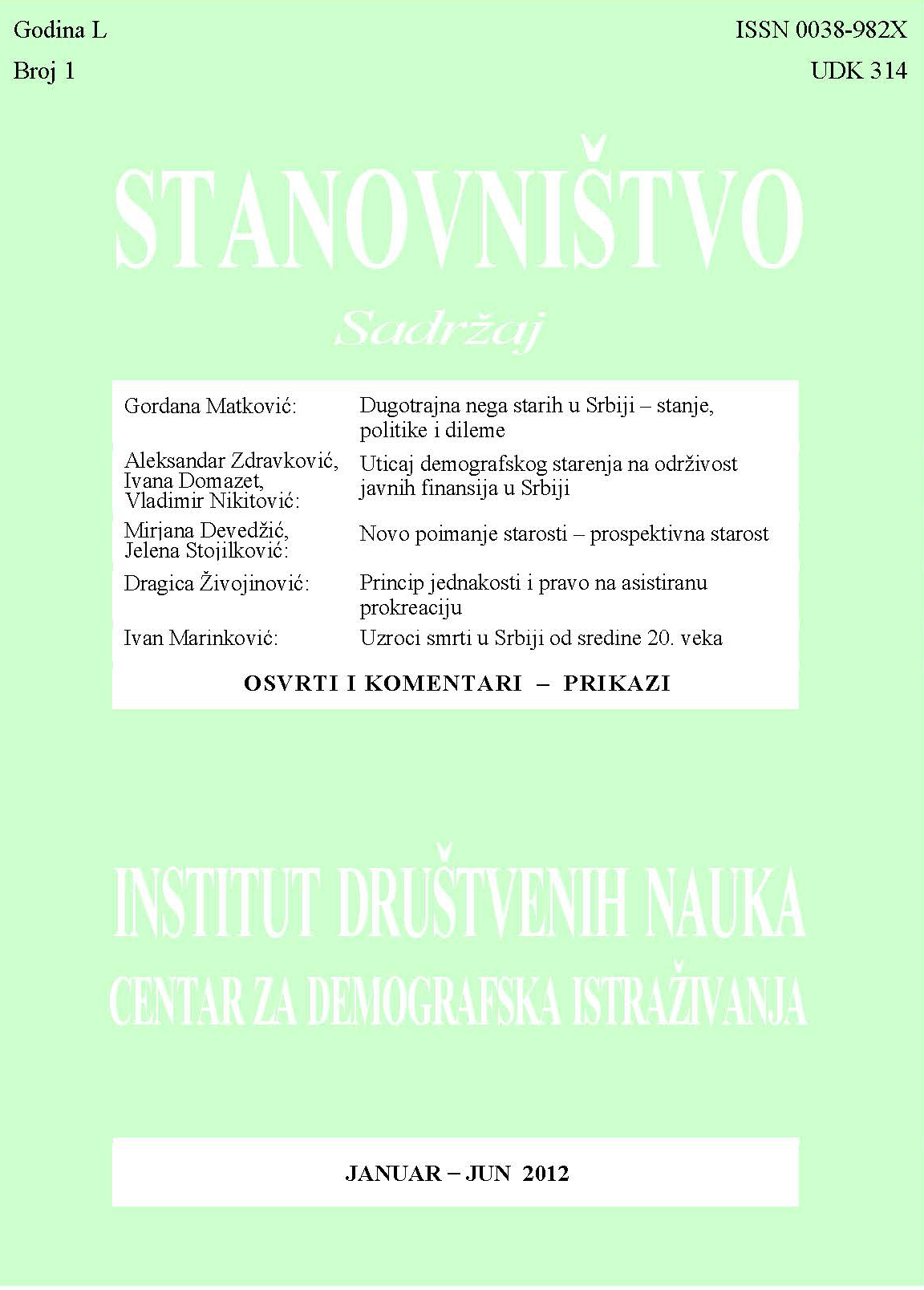Princip jednakosti i pravo na asistiranu prokreaciju
The Principle of Equality and the Right to Assisted Procreation
Author(s): Dragica ŽivojinovićSubject(s): Human Rights and Humanitarian Law, Sociology, Health and medicine and law, Demography and human biology
Published by: Институт друштвених наука
Keywords: equality principle; human assisted reproduction; human rights; discrimination; limited rights to assisted reproduction
Summary/Abstract: The principal of equality is the foundation of developing an entire system of human rights, and its implementation represents the standard of respecting each right individually. With these premises as a starting point, the subject of the author’s interests is whether the right to assisted reproduction, as a segment of reproductive rights, is regulated in conformity with the equality principal. In order to reach an answer, the author examines the concept of human assisted reproduction and analyzes the application of reproductive technologies in the light of legal, social and political reforms which affected marriages, the family and partnership in general at the end of the 20th century. The author finds that the most significant ones among them are the emancipation of women, recognition and legal formation of same sex unions and statements prohibiting discrimination based on sexual orientation. Furthermore, by considering the right to assisted reproduction in the context of other human rights with which it is interconnected and interdependent (the right to life, right to privacy, the right to a family life, health rights, children’s rights), the author finds there are no absolute, unlimited rights in the contemporary system of human rights, but that they inevitably have certain restrictions.Since the same limitation attribute also characterizes the right to assisted reproduction, the author further researches whether there is discrimination, positive or negative, towards the existing forms of limitations to this right. The following forms of limitations have been singled out, as the key ones for this analysis: request for (non)marital status and heterosexual orientation, sexual affiliation and age and the accessibility (prohibition) of applying certain methods of assisted reproduction which are primarily in the function of eliminating female sterility. The author concludes that there are elements of discrimination based on family status, sexual orientation, age and sexual affiliation. The author finds that emphasizing the need to protect the best interests of children, as a crucial reason for justifying their introduction, can hardly be defended both legally and ethically. The author believes that the basis of limitation lies in the reasons of social suitability, namely buying social peace at the present level of development of social conscience. By appealing to the principal of equality, the author intercedes in favor of accessibility to the right for assisted reproduction under equal conditions and limitations for each user, and prohibiting discrimination on any basis.
Journal: Stanovništvo
- Issue Year: 50/2012
- Issue No: 1
- Page Range: 69-87
- Page Count: 19
- Language: Serbian

